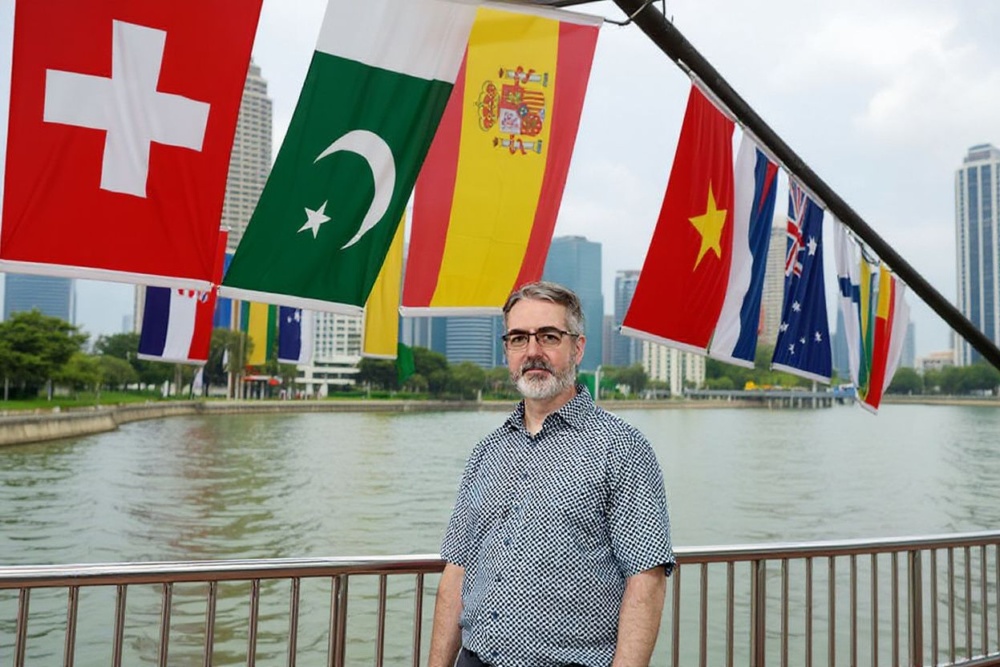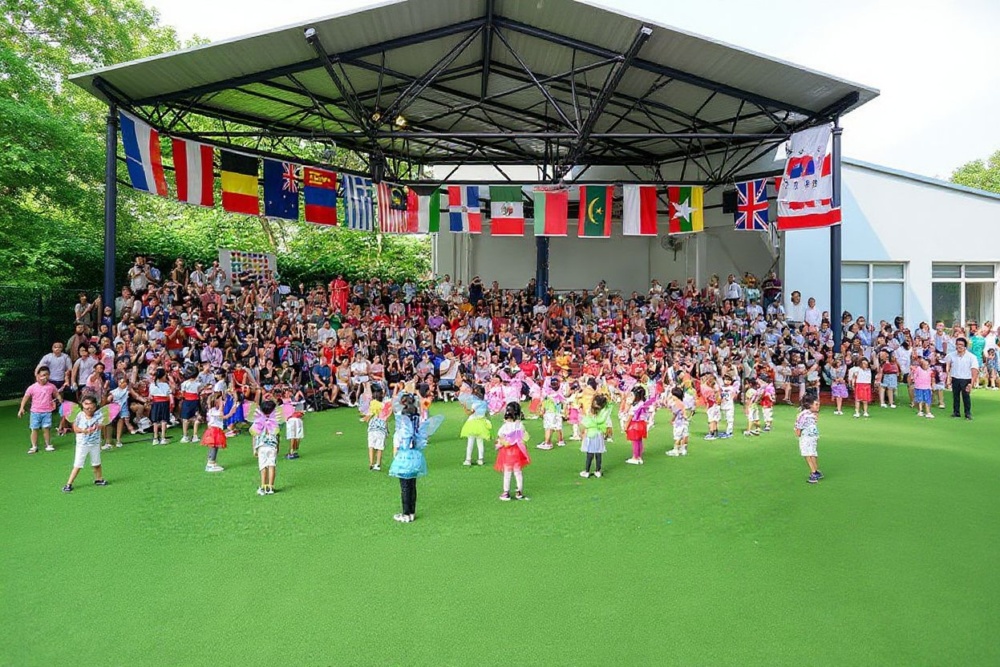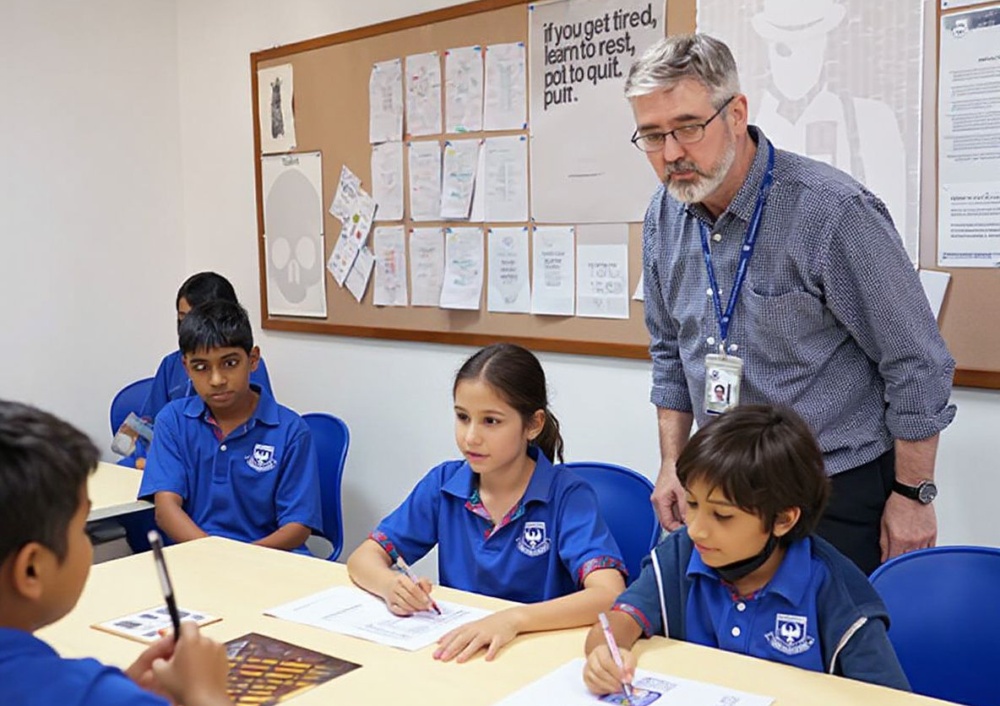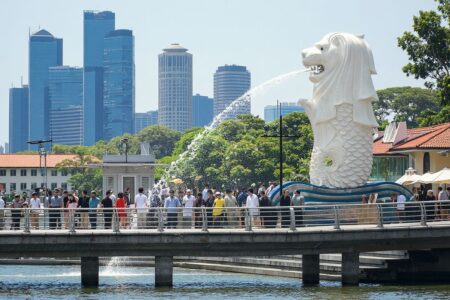
Originally from Canada, Dr. Tyler Sherwood never foresaw that he would be living in Singapore in 2025. In the early parts of his career, he had worked in primary and early childhood education. They were mostly temporary contracts, with him moving around his home Canadian province – until he wasn’t keen on doing that anymore.
“I figured if I was going to branch out, I’d go for something broader – so I went to China for a few years, then came to Singapore.”
Today, he’s the Head of Chatsworth International School in one of the most popular countries to study, live, and work in today.
Singapore is part of the US News & World Report’s list of best countries to study abroad, and is ranked as one of the safest in the world by Forbes. It’s also home to one of the most prestigious universities in Asia.
Having worked at Chatsworth International School since 2004, Dr. Sherwood is now an authority on living in Singapore as an expat and studying at its increasing number of international schools. He not only knows Singapore’s stats in global rankings, he lives them.
 Dr Sherwood adores Singapore and what it has to offer.
Dr Sherwood adores Singapore and what it has to offer.
From teaching in Canada to living in Singapore
As a young teacher in Canada, Dr. Sherwood worked with primary schools but when he initially went overseas, teaching in Beijing and Suzhou, he worked in high school, teaching Canadian literature and geography. After moving to Singapore, he was keen on pursuing his roots – early childhood education – and eventually found his way to Chatsworth International School.
He spent a few years teaching and holding middle leadership roles before becoming the principal for the school’s East Campus, then eventually wound up becoming its Head of School, which he has been now for over 14 years.
“I oversee the opening and development of our campuses, IB programmes, staff and students, and everything else under the sun, of course,” he said. “For example, if a tree has fallen at the back of the campus and is impacting the logistics of moving around – I get to that and find external services to cut it up. Happens once in a while because we’re in such a lush environment.”
 Chatsworth School has plenty of room for children to carry out activities. Source: Chatsworth International School
Chatsworth School has plenty of room for children to carry out activities. Source: Chatsworth International School
Lush barely begins to describe the Chatsworth environment. Many would think that Singapore, a country that takes only 45 minutes to cross from one end to the other, would be a densely packed environment, filled with towering buildings and noisy traffic.
On the contrary, the country is home to numerous parks, gardens, and other green spaces. Urban greenery is a big thing here – the Urban Redevelopment Authority (URA) incentivises developers to incorporate environmentally friendly concepts into their designs and landscapes, enhancing tranquility and sustainability. Those living in Singapore enjoy less polluted air compared to neighboring countries along the equator.
“Here at Chatsworth, we don’t have the hum of electricity and traffic, because we’re on top of the hill,” said Dr. Sherwood. “Instead, we have the sound of wildlife and nature; there’s everything on campus, like a pangolin, flying lemurs, a variety of snakes, otters, and even rainforest monkeys. Of course, snake duty is part of the job, too!”
 Families from around the globe enjoy Singapore and what its international schools have to offer.
Families from around the globe enjoy Singapore and what its international schools have to offer.
Singapore is a good place for families to live in
Having spent a little over two decades in Singapore, Dr. Sherwood describes the place as “an incredibly positive bubble.” To him and many others living in Singapore, the country is no different than any other big city like New York, Toronto, Vancouver, Melbourne, or Sydney – except that it stands out for its safety.
“It’s an extremely well-run place. Very green, very safe – my own children, who are in middle school now, are able to go out on their own or with friends, and I don’t have to worry about them like I would if they were back in Canada,” said Dr. Sherwood. “It’s one of the reasons that teachers – or anyone – choose Singapore as a place to come and live and work.”
He paused to smile. “Also, the food is excellent.”
Another standout reason? Singapore’s schools. There are many excellent choices for expat families – choose from local schools, which have a strong emphasis on academic rigour and excellence, or enrol in one of the many international institutes around the country, like Chatsworth.
For parents living in Singapore, Dr. Sherwood says they’re spoiled for choice.
 Dr Sherwood has spent many years teaching children from all corners of the globe. Source: Chatsworth International School
Dr Sherwood has spent many years teaching children from all corners of the globe. Source: Chatsworth International School
“There’s so many options for schooling here – lower cost options, British, American, Australian, French, Swiss, Dutch curriculums, IB schools, and more,” he said. “It’s a rarity honestly, because you’ll only get a handful of options in other countries and cities.”
A vast majority of international families living in Singapore choose to enrol their children in one of the country’s 50-or-so well-established international schools. The reason? A fantastic choice of programmes that lead to global universities, coupled with a holistic education that ensures each child is developed in more ways than just academically.
“As an expatriate parent coming in, you really only need to look at what schools align with your values,” he continued. “Are you looking for a big or small school? Would you prefer an IB school, or one that’s more strategically aligned to your home country’s curriculum?”
As both an expatriate parent and the head of an international school himself, Dr. Sherwood speaks from experience. Having gone through the process himself, while speaking to hundreds of parents over the years at Chatsworth, he knows how important it is to raise children in a secure and supportive environment.
Singapore is a good place for families to live in as the schools and wider environment – community, friends, social networks – tick all the right boxes. “That’s why you have expats who come in and stay for a long time like myself,” Dr. Sherwood said.

At Chatsworth, students are offered a holistic learning experience. Source: Chatsworth International School
How do international schools like Chatsworth stand out?
Lush settings and wide range of schooling options aside, international schools in Singapore stand out for their more holistic approach to learning. Chatsworth is one of them, emphasising pastoral care and strong relationships.
“As generations change and younger parents are coming into the school, they have more experience with conceptual learning as compared to traditional methods, and that’s what they’re looking for,” said Dr. Sherwood.
Aside from grades, these parents want opportunities that allow their children to be exposed to different styles of learning – ones that would allow them to approach, find, and share information as they develop.
“There are always challenges with an international school, especially one with such a large and diverse population,” he explained. “So schools like Chatsworth look at providing as much opportunity as possible for parent training, workshops, and other resources to help families understand different ways of learning and develop the soft skills needed to help their children.”
Feedback is a big part of Chatsworth. Parents and teachers fill feedback forms after workshops, older students share their reflections within their IB programmes, additional peer evaluation and self-assessments, and most importantly, a lot of open conversation.
“There are a variety of opportunities for assessing what’s working, what’s not, and how to adjust,” Dr. Sherwood described. “There’s never a challenge to get people to open up and learn new things.”
Students and parents aren’t the only ones learning, either. For all this to succeed, staff and educators like Dr. Sherwood too, have to learn and adapt to new things like technology.
“For all this to happen, staff have to continuously develop, and that’s a fantastic area for Singapore, because international schools here are very collaborative and open with each other,” said Dr. Sherwood.
“There’s a lot of open sharing that happens amongst teachers, departments and leadership teams, and schools open their doors to educators from other schools as well. It’s a large part of our budget to make sure our staff too, are continuing to learn – but then again, that’s why we became teachers in the first place – because we enjoy learning.










